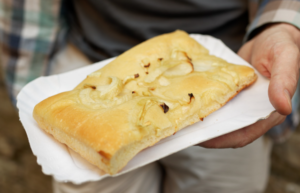The Controversy Over Whether Prime Rib Needs Au Jus – Find Out The Truth Here!
What To Know
- The decision of whether or not to serve prime rib with au jus is a balancing act between personal preference, the cooking method, and the desired outcome.
- The traditional method involves reducing the natural juices from the prime rib in a saucepan, thickening it with flour or cornstarch, and seasoning it to taste.
- It is generally not recommended to pour au jus directly over prime rib, as it can dilute the natural juices and alter the flavor of the meat.
Prime rib, a succulent and flavorful cut of beef, is often accompanied by a savory sauce called au jus. But is au jus an essential component of the prime rib experience, or is it merely an optional enhancement?
Understanding Au Jus
Au jus, literally meaning “with juice” in French, is a sauce made from the natural juices of the meat, usually beef or veal. It is typically thickened with flour or cornstarch and seasoned with herbs and spices.
Prime Rib’s Natural Juiciness
Prime rib is known for its inherent juiciness. The marbling, or distribution of fat within the meat, contributes to its tender and flavorful texture. When cooked properly, prime rib releases a significant amount of natural juices.
The Role of Au Jus
Au jus serves two primary purposes:
1. Enhancement of Flavor: The rich and savory flavors of au jus complement the natural taste of prime rib, adding an extra layer of depth and complexity.
2. Moisturizing: Au jus helps keep the prime rib moist and succulent, especially if it is cooked to a higher doneness level.
Au Jus as a Matter of Preference
Ultimately, the decision of whether or not to serve prime rib with au jus is a matter of personal preference. Some diners prefer the added flavor and moisture that au jus provides, while others enjoy the pure, unadulterated taste of the prime rib itself.
When Au Jus Is a Necessity
There are certain situations where au jus is considered an essential accompaniment for prime rib:
- Dry-Aged Prime Rib: Dry-aged prime rib has a more concentrated flavor and is often less juicy than regular prime rib. Au jus helps balance its intensity and add moisture.
- High-Temperature Cooking: Prime rib cooked at high temperatures, such as on a grill or in a hot oven, may lose some of its natural juices. Au jus can compensate for this loss and keep the meat moist.
- Large Gatherings: When serving prime rib to a large group, au jus can be a convenient way to add flavor and moisture to multiple servings.
When Au Jus Is Not Necessary
In some cases, au jus may not be the best choice for prime rib:
- Perfectly Cooked Prime Rib: If the prime rib is cooked to perfection and retains its natural juices, au jus may be unnecessary or even overpower the delicate flavor of the meat.
- Personal Preference: Some diners simply prefer the taste of prime rib without any added sauces or condiments.
- Health Considerations: Au jus can be high in sodium and fat, so it may not be suitable for those with dietary restrictions.
Summary: A Balancing Act
The decision of whether or not to serve prime rib with au jus is a balancing act between personal preference, the cooking method, and the desired outcome. While au jus can enhance the flavor and moisture of prime rib, it is not always necessary and may not be suitable for all tastes or dietary needs.
Top Questions Asked
Q: What is the best way to make au jus for prime rib?
A: The traditional method involves reducing the natural juices from the prime rib in a saucepan, thickening it with flour or cornstarch, and seasoning it to taste.
Q: Can I use store-bought au jus with prime rib?
A: While store-bought au jus can be convenient, it may not have the same rich flavor and texture as homemade au jus.
Q: What other sauces can I serve with prime rib besides au jus?
A: Horseradish sauce, red wine sauce, and chimichurri are popular alternatives to au jus.
Q: Is it okay to pour au jus over prime rib?
A: It is generally not recommended to pour au jus directly over prime rib, as it can dilute the natural juices and alter the flavor of the meat.
Q: How do I keep au jus warm for a large gathering?
A: You can keep au jus warm in a slow cooker or a double boiler.
